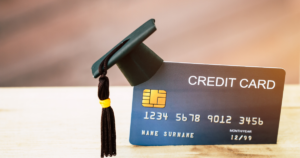Unless you live in a major city with reliable public transport, you’ll most likely need to purchase a car at some point. While a car can absolutely be an asset for your lifestyle, it’s crucial to make sure it doesn’t run over your financial livelihood. You don’t want to go over your budget or get into deep debt over your wheels. Keep in mind, our debt counselors recommend that you spend no more than 20% of your income on transportation each month (including car payments, gas, insurance, etc.). Let’s explore the different ways to buy a car.

Our credit counseling advice is to evaluate different ways of buying a car and picking the best one for you.
1. Paying Cash Upfront
The benefits are clear – there won’t be any monthly payments or high interest rates that affect your other expenses, you won’t have a car loan on your credit report, and you’ll be less likely to spend beyond your means. Out of the different ways of buying a car, this is the most-straightforward. Once the dealership cashes your check, that car is truly yours.
As amazing as that is though, there are a couple of things to consider. Even if you have enough cash for the car, think carefully about whether or not you can part with that money. You don’t want to deplete savings for your current expenses or wind up short for future emergencies. It never hurts to think of ways to replenish your savings after paying for your car. Additionally, if you need to start or reestablish a credit history, a properly-managed car loan can help with that.
2. Financing a Car
Some people don’t have all the money upfront to pay for a car. But if you’ve determined that you absolutely need one (i.e. biking to work is impossible), there are ways to (responsibly!) gradually pay it off. When you finance a car, you take out a car loan that you repay overtime. A financial institution (such as banks, credit unions, and some car dealerships) lend you the money you need to buy a car – then, you pay them interest and possibly fees.
If you’re confident that you can make payments on time, financing a car can be a good idea. A short term option is worth considering – you can pay it off faster, since you’re paying a bigger amount of the loan’s principal each month. If that’s not viable for you though, a longer-term option might be a better fit for you. With financing, the interest rates can also be relatively low, depending on your credit score.
3. Leasing a Car
When you lease a car, it’s important to note that you’ll be paying to drive a new car, not to own it. It’s almost like renting a car from a car dealership. You make monthly payments – then once the term ends, you return the car to the dealership. You might also have the option to keep the vehicle.
If you only see yourself living somewhere for the short-term (i.e., your work relocated you temporarily or you eventually want to move closer to family), leasing a car might make more sense than buying and later having to sell one. Leasing a car can also be easier on your monthly budget, since the payments are lower than buying the car. However, be sure to budget for other possible fees, (i.e., early termination, going over the mileage restrictions). Unexpected expenses can derail your budget or even put you in debt if you don’t have money set aside for it.
There are different ways to buy a car, but just one right way for you. You’ll feel more confident and secure after you outline your budget and calculate your finances, Whatever method you choose, make sure you can afford it and that your other expenses aren’t affected.
If you’re struggling with debt, schedule a free credit counseling session with us today.






